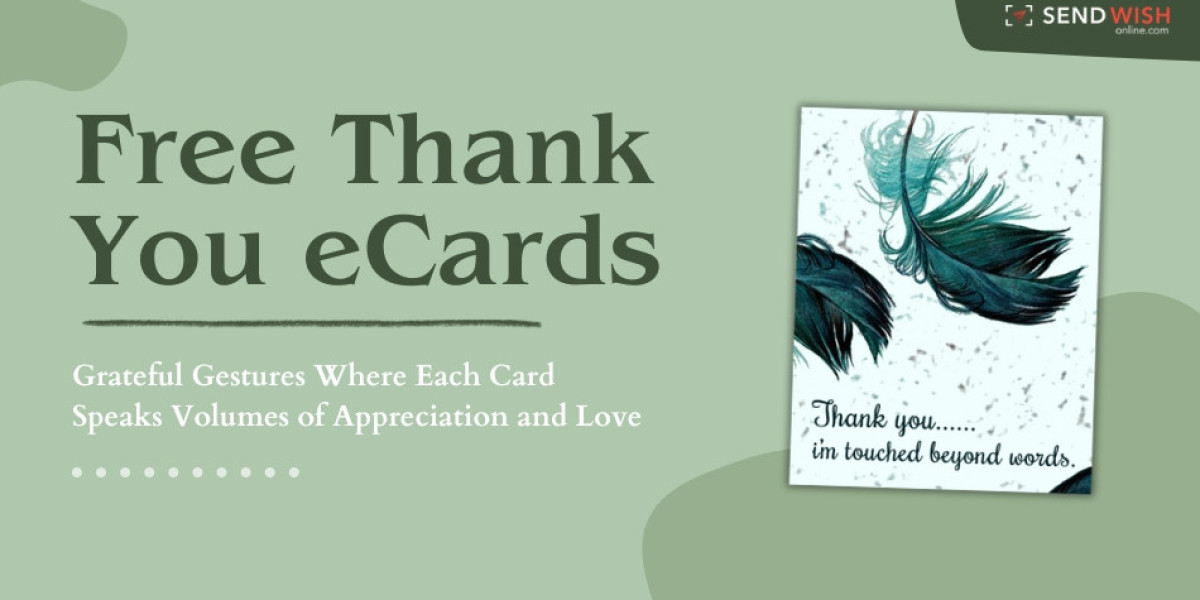Introduction:
In this era of digital communication, where messages can be sent with just a few taps on a screen, the art of expressing gratitude through handwritten thank you card may seem outdated. However, the timeless tradition of sending thank you cards holds a unique power to strengthen relationships in a profound and heartfelt manner. Far from being mere pieces of paper, thank you cards carry emotions, sincerity, and thoughtfulness from the sender to the recipient. In this article, we will explore the significance of thank you cards and how they can enhance and nurture relationships.
Personal Touch and Thoughtfulness:
Thank you cards provide a personal touch that digital messages simply cannot replicate. The act of taking pen to paper demonstrates a genuine effort and thoughtfulness that leaves a lasting impression on the recipient. The time spent in selecting or creating a card, crafting a heartfelt message, and addressing and mailing it, all convey a deep level of appreciation that resonates with the recipient.
Emotional Impact:
Thank you cards have a unique ability to evoke emotions in both the sender and the recipient. When we receive a handwritten thank you card, it creates a sense of joy, surprise, and appreciation. The physical presence of the card allows us to hold and treasure the message, making it more memorable and impactful than a fleeting digital message. Moreover, the act of writing a thank you card can be therapeutic for the sender, as it allows them to reflect on their gratitude and express it in a meaningful way.
Strengthening Bonds:
Thank you cards play a vital role in strengthening personal and professional relationships. When we take the time to express our gratitude through a handwritten note, it shows that we value the relationship and the efforts made by the other person. It fosters a sense of connection and reciprocity, making the recipient feel acknowledged and appreciated. This, in turn, encourages them to continue their positive actions and strengthens the bond between both parties.
Long-lasting Impressions:
Thank you cards have a lasting impact that extends beyond the initial exchange. Unlike digital messages that can be easily forgotten or deleted, thank you ecards often find a place in recipients' homes or offices. They serve as reminders of the gratitude expressed and can be revisited, bringing back positive memories and reinforcing the relationship. In addition, the act of sending a thank you card creates a positive impression of the sender, showing them as someone who values and appreciates others, which can have a ripple effect on future interactions.
Cultivating Gratitude:
Thank you cards serve as a reminder to cultivate an attitude of gratitude in our lives. When we take the time to express appreciation in a tangible and meaningful way, we become more mindful of the positive aspects of our relationships and experiences. This practice of gratitude not only benefits the recipient but also transforms the sender, fostering a more positive and grateful outlook on life.
Uniqueness and Individuality:
Thank you cards allow for personalization and creativity. Each card can be tailored to the recipient, reflecting their personality, interests, or shared experiences. This individualized touch demonstrates that the sender has taken the time and effort to make the message special, further deepening the bond between them.
Formality and Professional Relationships:
Thank you cards are not limited to personal relationships alone. In professional settings, sending a thank you card after a job interview, a successful collaboration, or receiving assistance from a colleague can leave a lasting impression. It showcases professionalism, gratitude, and attention to detail, making the sender stand out and potentially opening doors for future opportunities.
Intergenerational Appeal:
Thank you cards have a universal appeal that transcends generational boundaries. While younger generations may be more accustomed to digital communication, receiving a physical card can still evoke a sense of nostalgia and appreciation. Older generations, on the other hand, often appreciate the traditional nature of thank you cards and may value them even more.
Occasions for Thank You Cards:
Thank you cards can be used for a wide range of occasions. From expressing gratitude for a gift, a favor, or support during a difficult time, to thanking teachers, mentors, or healthcare professionals, there are countless opportunities to show appreciation through a handwritten note. Remembering these occasions and reaching out with a thank you card helps maintain and strengthen relationships in various areas of life.
Building a Culture of Gratitude:
When we make thank you cards a regular part of our lives, we contribute to building a culture of gratitude. By expressing appreciation in a tangible way, we encourage others to do the same. This ripple effect can create a positive atmosphere where people feel valued and acknowledged, leading to stronger and more fulfilling relationships overall.
Conclusion:
In a time when digital communication dominates our interactions, the power of free thank you cards to strengthen relationships should not be underestimated. These tangible expressions of gratitude carry a personal touch, emotional impact, and create lasting impressions that foster deeper connections. By embracing the tradition of sending thank you cards, we can enhance our relationships, cultivate gratitude, and make a positive difference in the lives of others.
